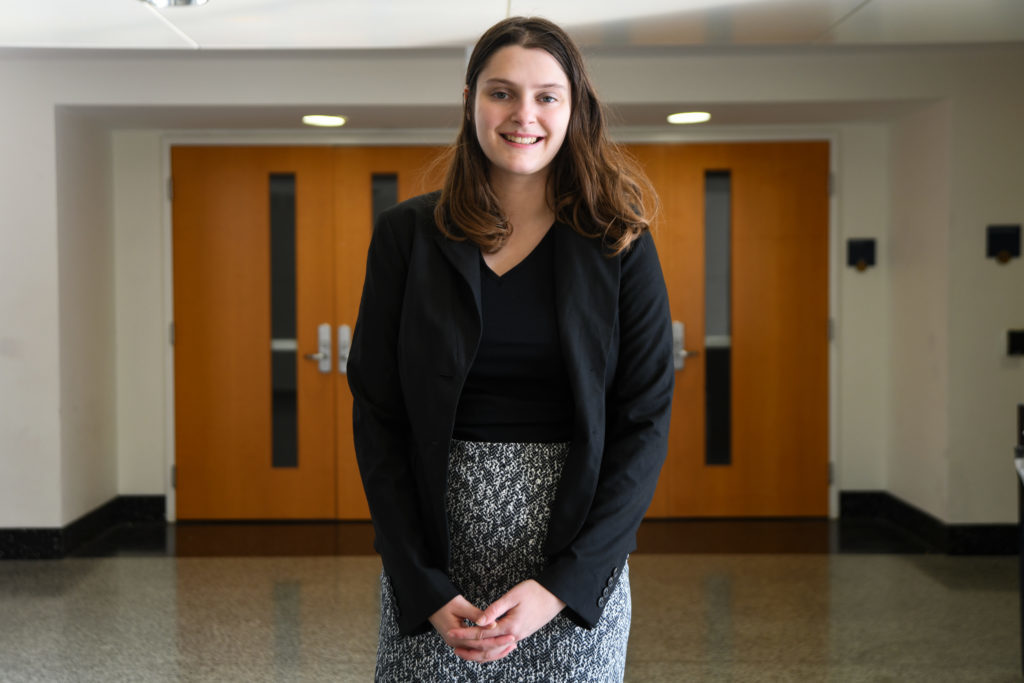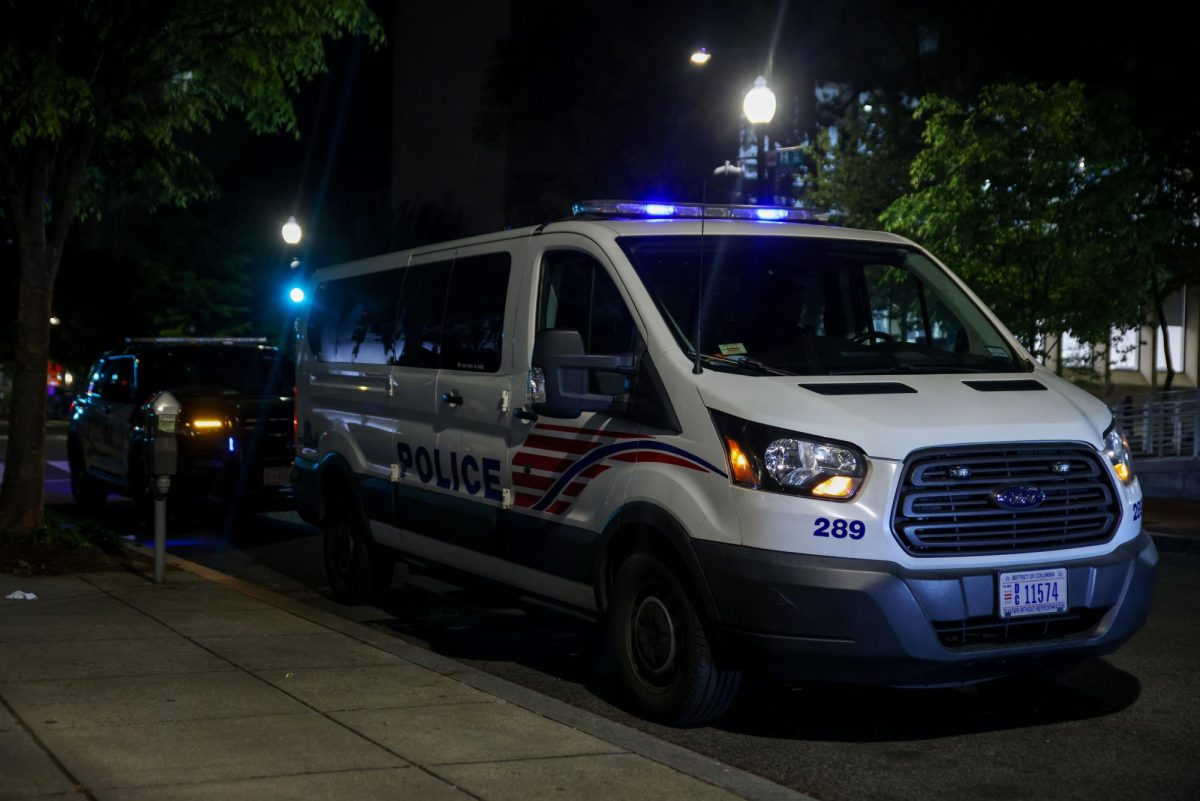After serving two years as one of the youngest elected commissioners on a local governing group, senior Eve Zhurbinskiy will resign at the end of the semester.
Zhurbinskiy will leave the Foggy Bottom and West End Neighborhood Advisory Commission when she graduates from GW in December. Her colleagues on the ANC said Zhurbinskiy’s passion when advocating for students or pushing community projects, like the GW Hospital helipad, brought moral clarity to their discussions.
Zhurbinskiy said because GW constitutes about half of the Foggy Bottom neighborhood, student voices on the ANC are vital to bring new perspectives to community decisions.
“When students are heard we can really get a lot accomplished in ways that non-students maybe haven’t thought about,” she said. “If the students aren’t being heard on those issues, then we are really disenfranchised in some of the issues that matter the most to us.”
Zhurbinskiy said navigating GW’s bureaucracy was one of the biggest challenges she faced on the ANC because University officials are generally resistant to new initiatives and often have different priorities than community leaders. When she and the ANC backed a plan last year to give students an unlimited Metro pass, American University “jumped on board” while GW refused to accept the program, she said.
Officials said at the time that it wouldn’t be fair to mandate all students pay for the Metro pass on their tuition bill because some don’t use public transportation.
“That was very frustrating to me because I thought that it was a program that would really benefit students and now everybody’s sort of forgotten about it because GW hasn’t accepted it,” Zhurbinskiy said.
Among the most important accomplishments of her tenure, she said, was her work this year to include funding for a garden at The School Without Walls at Francis Stevens as part of a $700,000 community package to encourage support for GW’s Pennsylvania Avenue development complex. Zhurbinskiy said Boston Properties, the real estate firm overseeing the development, recently allocated $37,000 to expand the middle school’s urban farm.
She also helped to make the transfer process easier for sexual assault survivors – which she included in her original campaign platform.
In her initial campaign, Zhurbinskiy sought to bring rape kits to GW Hospital, but she said last month that she dropped the effort after learning that the hospital would have to undergo costly renovations and hire specially trained nurses to give the tests.
Zhurbinskiy has also pushed to add a crosswalk between District House and Kogan Plaza, a project she hopes her successor will also support. She said her replacement should be committed and willing to learn about local government to become an impactful local advocate.
“Make sure that people feel like you’re really caring about what they think – I think that’s really the main way to succeed on the ANC,” she said.
ANC chairman Patrick Kennedy said Zhurbinskiy was unwavering in her beliefs that students’ views should be represented on every project affecting them.
“She brought a lot of energy to different endeavors on the commission and brought a sensibility to our deliberations that maybe was not there previously,” he said.
Kennedy said because the area the ANC represents is largely home to students, student representatives help ensure the community is fully represented in local government.
“They keep the ANC well-informed about what’s going on on campus, and serve as valuable bridges between the broader community and the interests of the student body,” he said.
Students interested in running for the spot must collect 25 signatures from D.C. residents to be eligible for the ANC. If only one candidate gets the required signatures, then they will serve in the role. If more than one candidate runs, a special election will be held likely next month during an ANC meeting, Kennedy said.
He added that the replacement will likely be transitioned into the new role by early February.
James Harnett, the only formally announced candidate for the open spot, said he will run for the position because he is deeply connected to academic and student life – as the director of information technology for the Student Association cabinet and the disaster response coordinator for GW Red Cross.
He said without student support, projects like adding a helipad on the roof of GW Hospital for trauma patients would have failed. In October, the ANC narrowly voted to support the project following months of negotiations.
Harnett said homelessness, street harassment and campus safety are issues that deserve increased attention from the ANC and D.C. government.
“I’m focused on uplifting student’s ideas, fighting for laws that are just, sharing progress and being accountable to students,” he said. “I plan to be a voice for students and fight for the issues they care about.”





